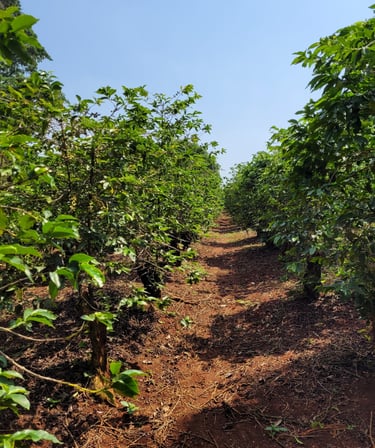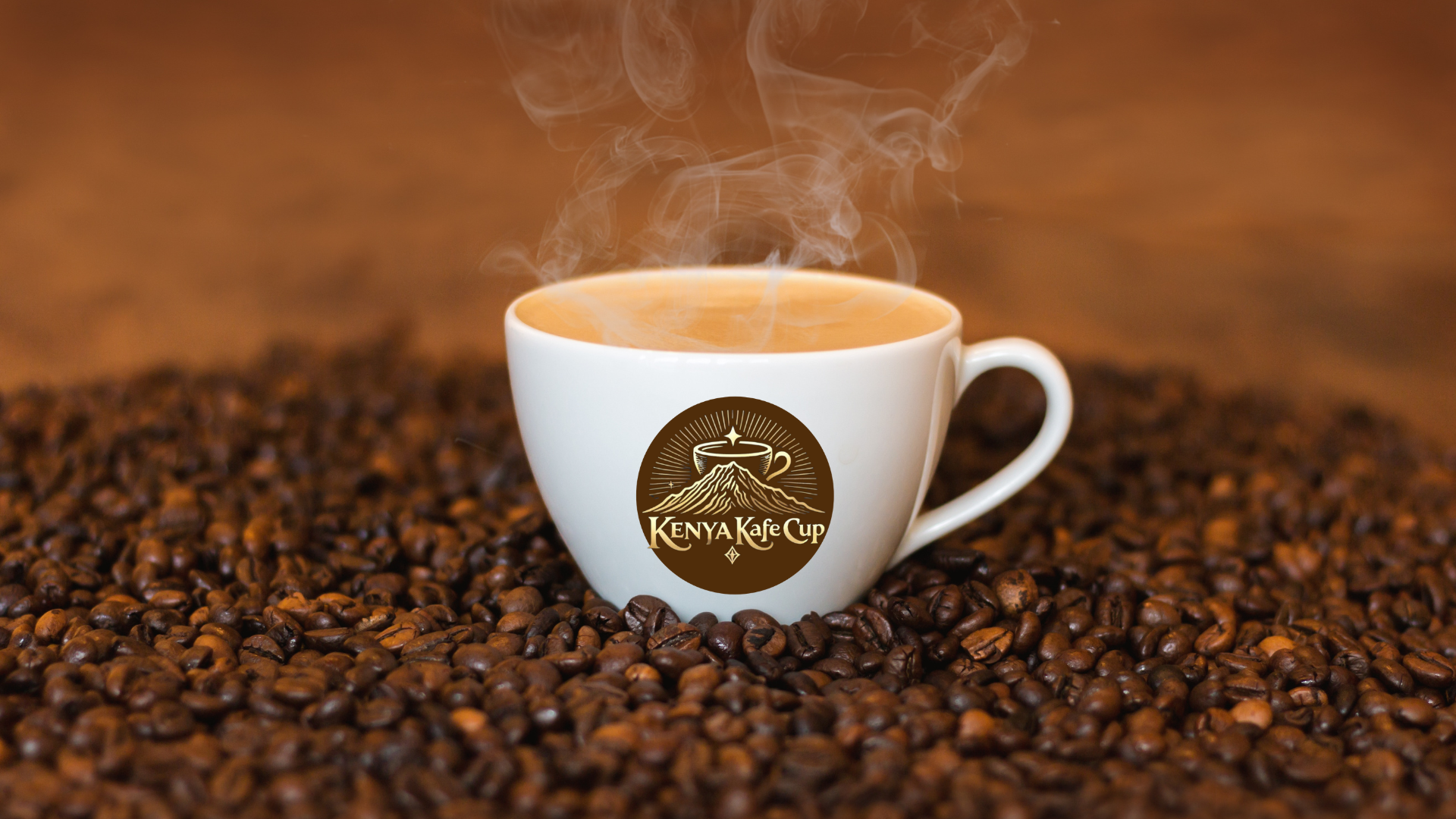The Journey of Kenyan Coffee from Farm to Cup
How does Kenyan Coffee Travel from Kenyan Farms to Your Cup
EXPLORING KENYAN COFFEE
Andiee M
2 min read


Kenyan coffee is celebrated worldwide for its rich flavor, vibrant aroma, and distinct acidity. But have you ever wondered how this premium coffee makes its way from the lush highlands of Kenya to your morning cup? Let’s embark on an exciting journey to uncover the process that transforms humble coffee cherries into the liquid gold we cherish every day.
1. The Origin: Fertile Kenyan Highlands
The story begins in the rich volcanic soils of Kenya’s highlands, where coffee thrives in ideal growing conditions. Regions like Nyeri, Kirinyaga, and Murang’a, nestled at the foot of Mount Kenya, provide the perfect blend of altitude, temperature, and rainfall to nurture Arabica coffee beans. Most Kenyan coffee is grown by small-scale farmers who carefully tend to their crops, often passing down this skill through generations.
2. Cultivation: Nurtured by Passionate Farmers
Each coffee plant starts as a seed, cultivated with care. Farmers in Kenya often practice intercropping—growing coffee alongside bananas, maize, or beans. This sustainable farming practice supports biodiversity and ensures the coffee plants get just the right amount of shade and nutrients. Kenyan coffee farmers prioritize quality over quantity, handpicking only the ripest cherries during harvest.
3. Processing: The Secret to Kenyan Coffee’s Unique Flavor
Kenyan coffee owes much of its distinctive taste to the meticulous post-harvest processing. Most farms use the washed (wet) process, where cherries are pulped to remove the outer fruit, fermented, and washed to remove the sticky mucilage. The beans are then sun-dried on raised beds, allowing air to circulate and prevent over-fermentation. This process enhances the coffee’s bright acidity and fruity notes
4. Grading: Sorting the Best Beans
Once dried, the coffee beans undergo rigorous grading based on size, weight, and quality. Kenya uses a unique grading system, with labels like AA, AB, and PB. The coveted Kenya AA represents the largest, highest-quality beans, renowned for their complex flavors of blackcurrant, citrus, and floral undertones.
5. Auctioning: A Global Marketplace
Kenyan coffee is sold through a highly regulated auction system at the Nairobi Coffee Exchange. Buyers from around the world bid for the best beans, ensuring transparency and fair pricing for farmers. This system helps elevate Kenyan coffee’s reputation as a premium product on the global stage.
6. Roasting: Unlocking the Flavor
Once the green beans reach roasters around the globe, the magic continues. Roasting is both a science and an art. Kenyan coffee is often roasted to a medium level to highlight its bright acidity and fruity complexity. The roasting process unlocks the beans’ hidden flavors, making each cup a delightful experience.
7. Brewing: Your Moment of Enjoyment
Finally, the beans reach you—the coffee lover. Whether you prefer a French press, pour-over, or espresso, brewing methods play a significant role in bringing out the best in Kenyan coffee. As you take that first sip, you’re not just enjoying a beverage; you’re savoring a journey that started thousands of miles away.
The Heart of Kenyan Coffee
Every cup of Kenyan coffee represents the dedication of farmers, the precision of processors, and the artistry of roasters. Beyond its incredible taste, Kenyan coffee tells a story of community, tradition, and sustainability.
So, the next time you enjoy a cup, take a moment to appreciate the journey it has traveled—and the hands that made it possible. After all, every sip is a connection to the beautiful landscapes and hardworking farmers of Kenya.
What’s your favorite way to enjoy Kenyan coffee?

